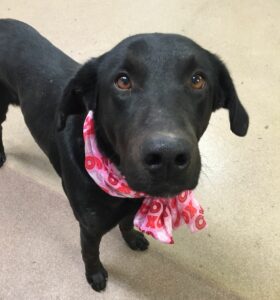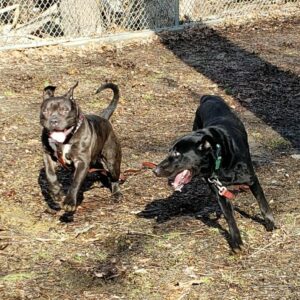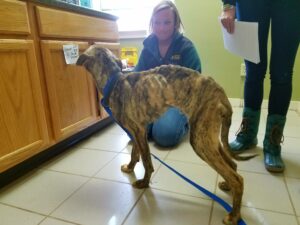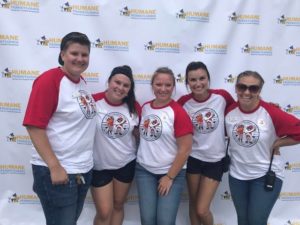by Karel Minor, President & CEO, Humane Pennsylvania
Occasionally you get a compliment you just know you’re going to remind people of. A lot. Humane Pennsylvania just received a doozy. In a recent article about veterinary services being increasingly offered accessibly to the poor, The Philadelphia Inquirer singled out Humane Pennsylvania for recognition with a headline referring to our programs and services as the “gold standard.”
 I tell people that all the time, but to have it stated in an article that highlighted the work of nearly a dozen animal welfare organizations across the region and nation is pretty awesome. In this case, it’s also pretty true. Humane Pennsylvania’s at risk pet programs, now consolidated under the Healthy Pets, Healthy Communities umbrella are, quite simply, the best. They were also among the first in the nation to take this approach.
I tell people that all the time, but to have it stated in an article that highlighted the work of nearly a dozen animal welfare organizations across the region and nation is pretty awesome. In this case, it’s also pretty true. Humane Pennsylvania’s at risk pet programs, now consolidated under the Healthy Pets, Healthy Communities umbrella are, quite simply, the best. They were also among the first in the nation to take this approach.
Nearly fifteen years ago tiny little Humane Society of Berks County (before we joined forces with Humane League of Lancaster County to become Humane Pennsylvania), converted its former grooming room into our first public clinic. We didn’t know that 120 square feet of community veterinary space would transform our mission and community, and inspire other organizations around the nation to follow our lead.
Our staff quickly figured out that what was missing from the community wasn’t merely access to a veterinarian. For many, what was missing was access to veterinary care with dignity. A place where you were treated with dignity. A place where you could foster in yourself and in your family a sense of dignity because you are providing your family pet with the care it needs. We provided an accessible and affordable service, to be sure, but a service delivered with respect and dignity, regardless of your ability to pay, the language you spoke, where you lived, or the color of your skin.
From that humble room and single veterinarian providing a couple hundred client visits a year, we have grown to have two 7,000 square foot, full service, nationally accredited, community veterinary hospitals in Reading and Lancaster, with seven veterinarians serving our neighbors (and we are hiring, in case any vets are reading this!). These hospitals now provide a combined 20,000 client visits annually. Humane Veterinary Hospitals (HVH) Reading and Lancaster are only among two dozen accredited non-profit practices in the entire nation.
They were the first and third to be accredited in Pennsylvania, and they both led the way and assisted in getting our peer non-profits accredited. This burgeoning non-profit practice wave is transforming the face of veterinary services and will be a create a sea change in the next decade, as more and more communities open practices which answer to a mission motive, not a profit motive. That’s good for animals, communities, and for veterinarians, who got into their work because they love animals, not to follow some corporate practice treatment checklist intended to maximize shareholder profits.
Our Humane Veterinary Hospitals are fully integrated into Humane Pennsylvania’s Healthy Pets, Healthy Communities program. This program, supported by our donors large and small, delivers key services critical to maintaining the health, safety, and welfare of our community pets living in economically challenged circumstances. Key among these are sterilization services, preventative vaccinations, microchip identification, food supports, and emergency shelters in times of crisis and disaster. 
These key services are backed up by comprehensive services delivered by our state-of-the-art veterinary hospitals because our goal is to transition clients in acute need into long term, regular recipients of veterinary services. The same regular care that folks with money and resources have access to. And delivered with the same respect and dignity.
Before the big national groups discovered that poor people had pets and needed vet care too, we had already begun providing large scale programs to deliver these services. Before the big national groups stopped judgmentally telling poor people they shouldn’t share the joy of a pet with their children because they were too poor began reminding everyone that access to vet care is about human dignity as much as it’s about animal health, we were already there.
We were already doing it, we were already promoting it, and we were presenting it nationwide at national, regional, and state conferences. We planted the flag and welcomed everyone to join us in this new humane world.
As an aside, one of the big national groups reported serving 60,000 animals a year through a well know nationwide program that focuses on the poor. Last year we served 20,000, just in Berks and Lancaster Counties. Their budget is about two hundred million, our budget was just about four million. It turns out we are also a pretty good return on investment.
 Healthy Pets, Healthy Communities is the “gold standard” for good reason. The quality is excellent, the cost is low, and the return is high. But fundamentally, it’s because we started early and from a unique place that recognizes that pets come with people. If we are not helping, respecting, and dignifying, those people, we won’t be effective at helping animals. Since our pets are woven into the fabric of our communities, healthy communities literally require healthy pets.
Healthy Pets, Healthy Communities is the “gold standard” for good reason. The quality is excellent, the cost is low, and the return is high. But fundamentally, it’s because we started early and from a unique place that recognizes that pets come with people. If we are not helping, respecting, and dignifying, those people, we won’t be effective at helping animals. Since our pets are woven into the fabric of our communities, healthy communities literally require healthy pets.
In case I forgot to mention it – our hospitals are also open to everyone, including you and your pet. If you are going to spend your hard earned dollars someplace, why not do it someplace where your dollars go directly to helping the community?
Why not spend your dollars someplace that will be there for you and your family should you ever face hard times and need a little help? With respect and dignity.
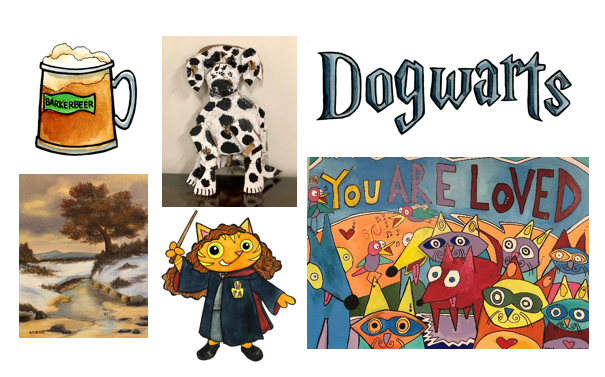
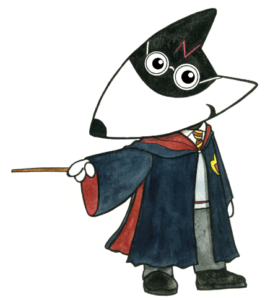 X), Steve Berlin (Los Lobos), and Dave Alvin (The Blasters), have personally donated pieces in support of this year’s auction!
X), Steve Berlin (Los Lobos), and Dave Alvin (The Blasters), have personally donated pieces in support of this year’s auction!


